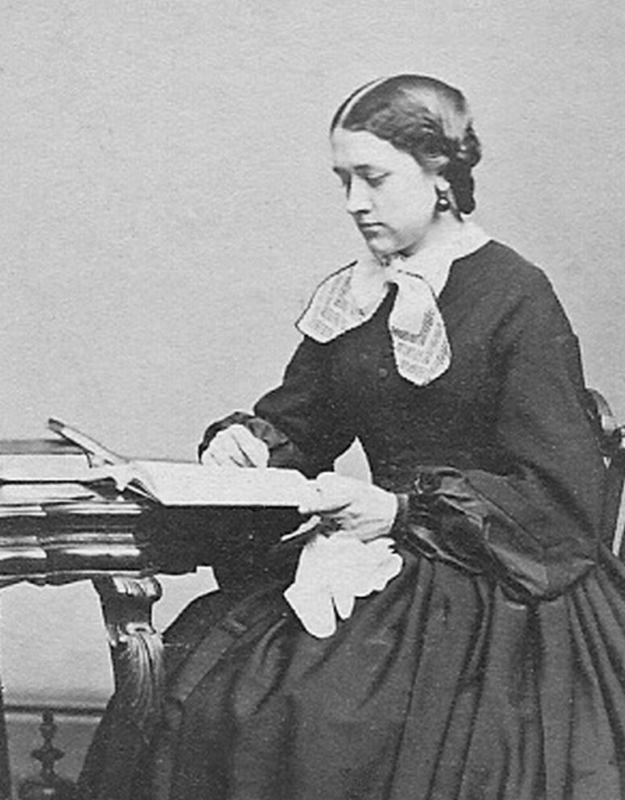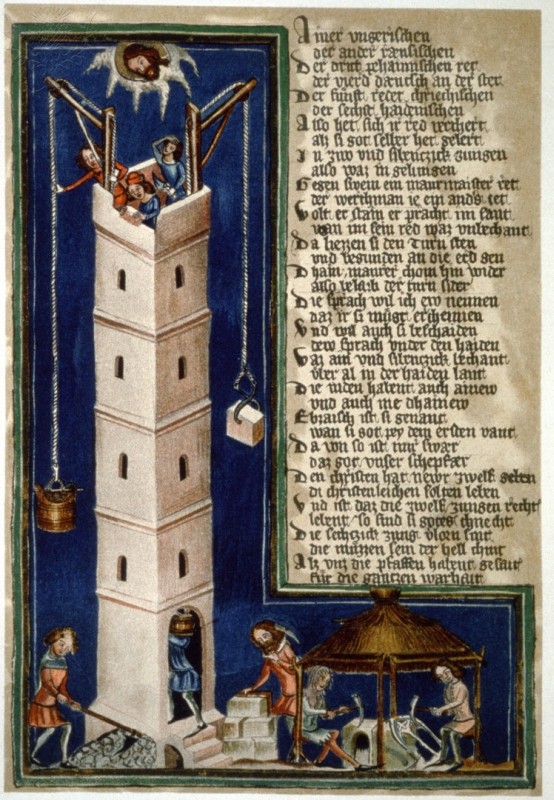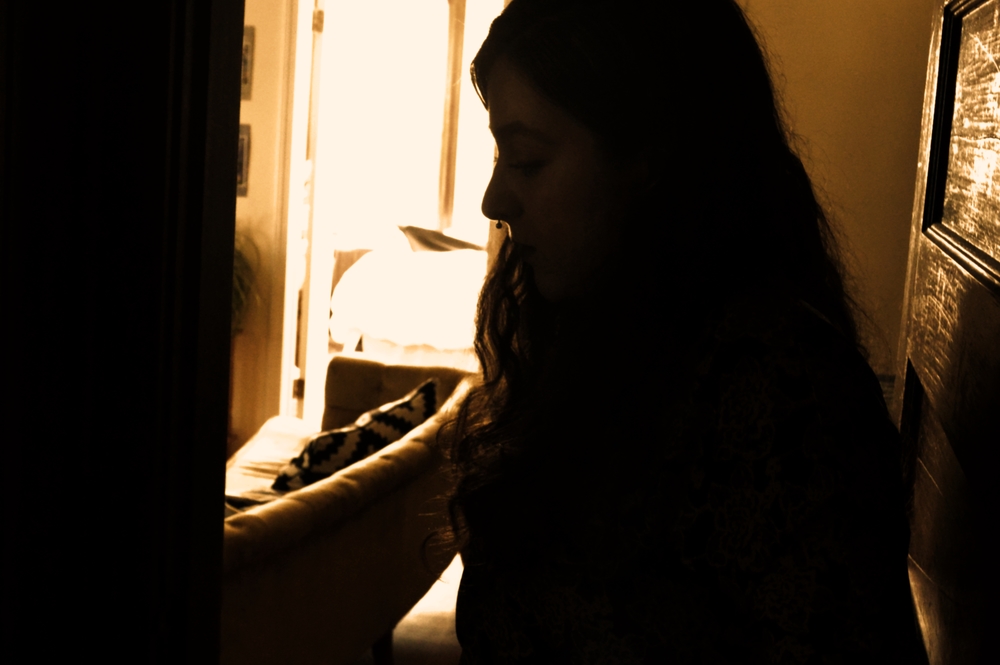by Tom Matthews

By Sirimiri at English Wikipedia via Wikimedia Commons
Eddie Florence usually wore the peacoat. It was his best winter coat, a Christmas present from his his mother. He never left the house without it on.
Eddie got off his train at Union Station and took the city bus to his house. He climbed up the steps of his family’s modest two-floor home and burst through the front door.
“I’m home!”
No reply. A bit surprised, Eddie placed his bags on the living room floor. He walked out into the kitchen and hollered. No answer. Not wanting to waste a minute of break, he grabbed a pen and paper and jotted down a note: “Going out. Call if you need me. -Eddie”
Eddie called up Sally and asked her to pick him up, and minutes later he heard a car honk outside. He threw on his peacoat and hurried outside. Sally was parked in front of his house, checking her makeup in the rearview mirror.
Eddie climbed in. “Long time no see my friend, how are you?”
“I was awful, but now I’m great because it’s break and I get to see you, but mostly because it’s break.”
“Ah, but you said it, so you mean it.”
“Yes, Eddie, I was just dying to see you.”
He put his hand to her forehead, “Ms. Hayward, you are looking rather ill and could faint any second now, please, let me treat you.” He quickly leaned over and kissed her.
“I forgot to tell you I have mono.”
Eddie rolled his window down and spat.
“Looks like you’re gonna die with me.” She winked at him.
They headed toward downtown.
“I can’t remember the last time I ate today,” he said.
“What do you mean you can’t remember?”
“I don’t know, but please pull in somewhere before I pass out.”
“No. You are a prisoner in my car now. We aren’t going anywhere. Except for a really long drive until you pass out, and I can throw your body in a ditch somewhere.”
They pulled into the parking lot of The Fix, a small 50’s style burger and shake joint. They were seated at a red booth across from one another.
“I want a chocolate shake,” she said.
“Just a shake?”
“Yeah, I’m not too hungry.”
“Are you sure? I don’t wanna hear you whine later.”
“Yes, I’m sure and shut up!”
Sally ordered her shake. Eddie ordered water and a burger with American cheese, lettuce, mustard, and ketchup. He stood up to take off his peacoat and hung it up on a hook attached to their booth.
He sat down and pulled a cigarette out of his pocket. He put it to his lips and raised a lighter to it slowly.
“Eddie, stop! You can’t smoke in here!”
“Why not? I thought this place was like the 50’s.”
“You can’t smoke in here! What are you, crazy?!”
“Relax, Sally-boo, I was just messing with you.”
“You are such a jerk.”
“If you don’t relax we really will have to call up a doctor.”
Their waiter, a tall, burly man, who showed no sense of urgency, brought their food.
“Anything else?” he asked insincerely.
“Yeah, can we get an EKG for this lovely lady?”
“Stop it!” Sally blurted as she playfully hit his hand.
The waiter let out a sigh, mumbled, “Good one,” and walked away.
“Gosh, you’re an idiot. You can’t even make a waiter laugh, and they get paid to pretend to like you.”
“That guy probably doesn’t laugh.”
Sally mumbled, “Mhmm,” as she stirred her straw around in her chocolate shake.
Anyways, how are you? I mean, how’s school and all?”
“It’s good, I mean it’s, you know—school.”
Eddie was putting his burger away quickly. Sally noticed him eating aggressively and warned, “Slow down before you choke.”
Eddie looked up and nodded.
“Anyways, how’s school going for you? And please, don’t talk with a mouth full. Chew first.”
“It’s okay.”
“Care to elaborate?”
“Uh. Not really.”
“Okay. Let me call Jake West, he’ll talk to me.”
“He’s a douche.”
Sally struck a stern face at Eddie and looked him in the eyes.
“Okay, okay, I’ll talk. But he’s still a douche. Anyways. I hate school. It’s awful. I’m surrounded by all these pseudo-intellectuals, and I can’t stand it. I mean, you can’t have a normal conversation with any of these guys. They all think what they have to say is the most prophetic, earth-shattering jargon to come out of a 20-year-old.”
Sally sat silently. She watched as Eddie became more and more excited with his words.
“They all walk around in their Oxfords and peacoats as if what they’re doing is so important.”
With a confused look on her face Sally interrupted, “You wear a peacoat.”
“What?” Eddie snapped.
“You wear a peacoat. You wore one here.”
“Seriously, Sally? My mother gave that to me for Christmas. You know how she takes gifts so personal. What, am I not supposed to wear it?”
“No, but why are you criticizing other people for wearing one?”
“Because they wear it for a different reason. They wear it because they think it makes them look important and that it accentuates their pseudo-intellect.”
Sally recoiled at each word.
“Okay, whatever, Eddie. I was just asking how school was, I wasn’t looking for a rant.”
“Rant? Who’s ranting? You asked me how school is and I’m telling you.”
“Okay.”
“Am I not allowed to have an opinion? Am I supposed to think everyone is great? Is that what you think? Everyone is great? Everyone is just so damn funny and smart and nice?”
“Eddie, can you please stop. You’re causing a scene.”
“You think this is a scene? This is a conversation. We’re talking.”
“No. You’re being obnoxious.”
Eddie starting laughing in a high-pitched hysterical laugh.
“You think I’m obnoxious? Hahahaha!”
Sally was turning red. She stared at her shake. She lifted her purse from the booth and put the strap over her left shoulder.
Eddie took a loud sip of water and finished it off.
“Are you gonna finish that shake?”
“No.”
Sally’s phone rang.
“Hello?”
Eddie sat there with a bored look on his face. Sally pulled the phone away from her ear and mouthed “sorry” to him.
“I’m at the Fix with Eddie…who’s there?”
Eddie got up and put his peacoat on and headed to the men’s room. Walking with his hands in his pockets and a pissed off look on his face, he replayed in his head Sally telling him she wasn’t looking for a rant. He kicked the door open and stormed in. “Rant! That wasn’t a damn rant. I can rant if you want!” He shouted to himself.
He walked up to a sink and turned on the cold water. He cupped his hands and let the water fill them and splashed it on his face. He grabbed a paper towel, and dried his face. He stood briefly staring at a picture of a jukebox hanging on the wall. He started thinking about how many fights jukeboxes must have caused when someone used the last quarter on songs no one else liked. He walked back over to the mirror and looked at himself for a few seconds. He punched the mirror. The mirror shattered instantly, and his hand started bleeding, dripping blood on the black and white tiled floor. He walked over to the paper towels and ripped a bunch out to wrap his knuckles. He took his peacoat off, walked over to the trash, and threw it in. He crouched down and frantically started trying to pick up pieces of the broken mirror.
The bathroom door swung open, startling him. It was their waiter. Trying to collect himself and not look too spooked, Eddie said, “Scared me there,” and walked out.
Sally was off the phone, and was sitting at the table reading the back of a ketchup bottle. Eddie walked up to the table.
“I don’t feel so hot, let’s go.”
The waiter opened the bathroom door and hollered, “Hey, kid!”
Contributing Editor, Thomas Matthews, is a Senior at Clark University where he majors in English, specializing in Creative Writing and Journalism.
Follow @writtenbytom !function(d,s,id){var js,fjs=d.getElementsByTagName(s)[0],p=/^http:/.test(d.location)?’http’:’https’;if(!d.getElementById(id)){js=d.createElement(s);js.id=id;js.src=p+’://platform.twitter.com/widgets.js’;fjs.parentNode.insertBefore(js,fjs);}}(document, ‘script’, ‘twitter-wjs’);













